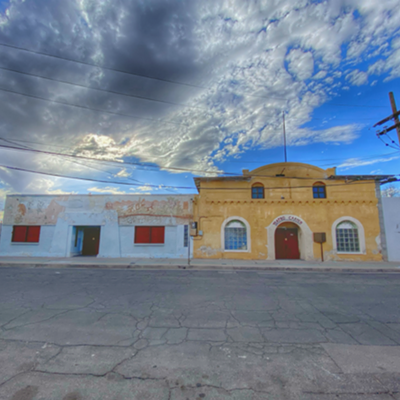Most of the 70-plus citizens who spoke at a four-hour meeting of the Independent Redistricting Commission last Saturday, Aug. 6, expressed concerns about keeping communities of interest together in new congressional and legislative districts, or about creating more competition between the two parties.
But state Rep. Terri Proud used her time to launch a blistering attack on the IRC itself.
"The voters wanted to depoliticize this process," Proud said. "However, you have made it one of the most partisan, underhanded and expensive processes in state history."
Proud, who has called for lawmakers to ask voters to pass a new ballot proposition to give lawmakers the power to draw their own boundaries, criticized IRC member Jose Herrera (who was not present) for saying earlier in the week that he would not cooperate with an investigation into alleged IRC open-meeting-law violations by Attorney General Tom Horne, who made a point when he announced his probe "to emphasize very clearly that this is an initial investigation that will attempt to determine if any violations actually occurred."
Proud suggested that both Herrera and commission chair Colleen Mathis should resign.
Proud's comments, which elicited both cheers and boos from the audience, represent the ongoing effort of Tea Party Republicans to delegitimize the Independent Redistricting Commission's efforts. Conservatives have been complaining because the commission hired Strategic Telemetry to do the technical work of drawing district maps, since the firm also did micro-targeting of voters for President Barack Obama's 2008 campaign.
But not all Republicans share the Tea Party concerns. Republican Pete Hershberger, who represented Legislative District 26 in the Arizona House of Representatives for eight years through 2008, offered a strong retort to Proud's comments.
"I believe in civil discourse, and I'm deeply disappointed in the vicious, partisan attacks on the commission and on the chair," Hershberger said, gathering his own share of applause from the crowd. "These politics of intimidation should be rejected by the citizens of Arizona. The IRC should remain independent and free from such blatant partisanship."
Sen. Al Melvin, a Republican who defeated Hershberger in the GOP primary for the LD 26 Senate seat in 2008, sat with a broad smile on his face while Hershberger talked about civility in politics.
Melvin addressed the commission to urge them to keep Legislative District 26 as "intact as possible" in the redistricting process. Melvin said that the residents of SaddleBrooke, where he resides, "look to the south" to Oro Valley and Marana when residents shop, seek medical attention and volunteer.
"This truly is a classic community of interest," Melvin said.
Sally Ann Gonzales, a Democrat who represents Legislative District 27, had a similar message for the members of the IRC, "asking the commission to keep District 27 as intact as possible, including the University of Arizona."
But state Sen. Paula Aboud urged commissioners to make her midtown-Tucson Legislative District 28 more competitive. Aboud also offered a rebuke to Proud's suggestion that the IRC was engaging in too much back-room dealing.
"I think politics today have become unseemly and too uncivil, and that is what has made it so difficult to serve in the Arizona Legislature," Aboud said. "When we talk about transparency and partisanship: When a budget is created in the Arizona Legislature behind closed doors, year after year after year, and it's called partisan and underhanded and non-transparent, nobody complains hugely about it, so it's a little difficult to understand those who come here and say that what you're doing is something other than what is being done by the majority party."
The five members of the IRC have the task of drawing new political boundaries for the state's congressional and legislative seats following the results of the 2010 Census. Among the challenges: carving up the existing congressional districts so that the state can add a ninth seat.
A draft "grid" map of the state could be released as soon as next week, but is expected to undergo significant changes before final maps are created later this year.







